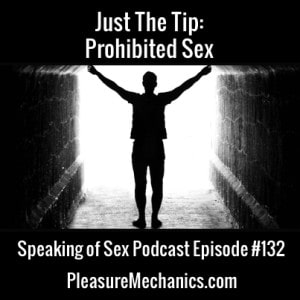Podcast: Play in new window | Download

Michel Foucault is a French philosopher, and considered by many to be the founding voice of Queer Theory.
His last major work was a multi volume series on The History Of Sexuality, and the primary objective is to examine the relationship between power and discourse. Discourse means the formal way we talk about a subject and the way that language creates meaning and action in the world.
Here Foucault describes the intention of The History of Sexuality: “The object, in short, is to define the regime of power-knowledge-pleasure that sustains the discourse on human sexuality in our part of the world”
Foucault challenges the idea that sexuality has simply been repressed, and introduces much more complex ideas about how power and sexuality interact in our culture. He calls this the “polymorphous techniques of power.”
In this book, Foucault describes the principal features of how we traditionally think about the relationship between sex and power.
One of these features is what he calls the cycle of prohibition, which describes how the threat of punishment maintains a silence around sexuality.
The cycle of prohibition:
“Thou shalt not go near, thou shalt not touch, thou shalt not consume, thou shalt not experience pleasure, thou shalt not speak, thou shalt not show thyself; ultimately thou shalt not exist, except in darkness and secrecy. To deal with sex, power employs nothing more than a law of prohibition. Its objective; that sex renounce itself. Its instrument; the threat of a punishment that is nothing other that the suppression of sex. Renounce yourself or suffer the penalty of being suppressed; do not appear if you do not want to disappear. Your existence will be maintained only at the cost of your nullification. Power constrains sex only through a taboo that plays on the alternative between two nonexistences” – The History of Sexuality, Michel Foucault
The challenge here is to remember that the cycle of prohibition doesn’t come from on high. It is not the law or the church that perpetuate this cycle, it is a more diffuse web of power, that we each participate in every day. Prohibiting sexual expression and sexual pleasure is entangled with our ideas of self-worth, the value of pleasure, our relationship to the body and to eroticism at large.
What are your “thou shalt not” thoughts? How do you invisibly punish yourself, or restrain your actions under threat of punishment?
We all occupy a position of power in our culture – which shifts all the time. Influenced by race, gender, class, education, physical appearance, and many other factors. How are you using your power when you discuss the sexualities of others? What do you prohibit or permit?